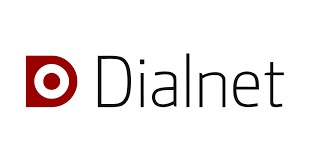Bioarqueologia: análisis preliminar del estado de conservación de una momia [Chisi Moix Muchik]en Cartavio, Provincia de Ascope 2024.
DOI:
https://doi.org/10.57063/ricay.v4i2.130Keywords:
Bioarqueologia, Arqueologia molecular, conservacion preventivaAbstract
Through bioarchaeology or molecular archaeology, it is possible to carry out actions based on human remains from the past. The objective of the work is to use strategies from bioarchaeology or molecular archaeology in the preliminary analysis of preventive conservation in a female mummy that is in an educational institution in the district of Cartavio, province of Ascope, region La Libertad. Regarding the research approach, it is quantitative, basic type and non-experimental design. Regarding the results, we have that 79.19% of the mummified body of the Moche girl is in good condition, at the level of injuries, 66.67% of the body presents a fact that can be produced by chemical or biological agents and the product of injuries in life, and regarding the storage space, it is inadequate with a percentage of 83.33%. Regarding the intervening variables, these are moderately related in a 0.528 fact that allows to verify the intervention. Finally, as for the conclusions we have that there is a natural mummification of the body of the Moche girl, apparently without the use of natural chemicals, however, in the space where it is currently stored it allows the acceleration of the deterioration of the body.
Downloads
References
Acevedo, N. (2012). La conservación del niño de Cerro el Plomo y su ajuar. Boletín del Museo Nacional de Historia Natural Chile, 61, 233-242 DOI: https://doi.org/10.54830/bmnhn.v61.2012.174
Copelli, S. (2010). Genética desde la herencia a la manipulación de los genes. Buenos Aires: Fundación de Historia Natural Félix de Azara
Gonzalez, D. (2024). Arqueología molecular para conservación preventiva; lesiones físicas y biológicas de cerámicas Museo de Sullana 2023. Revista Yachaq, 7 (1) 60-73
González, D. (16 y 17 noviembre 2023). Arqueología molecular análisis preliminar de conservación de momias IESTP Trujillo 2023. [Conferencia] I Congreso Internacional de Ciencia, Tecnología e Innovación UPAO, Trujillo, Perú.
Gonzalez, D. (2021). Modelo de investigación científica en arqueología: diseño teórico y diseño metodológico para proyectos en el Perú. Revista Arqueología y Sociedad. 34, 211-223 DOI: https://doi.org/10.15381/arqueolsoc.2021n34.e14136
Gonzalez, D. (2021). Modelo de análisis para indicadores de lesiones óseas por anemia en el antiguo Peru. Revista Salud & Vida Sipanense, 8 (1) 16-30. https://doi.org/10.26495/svs.v8i1.1593 DOI: https://doi.org/10.26495/svs.v8i1.1593
Gonzales L, Brida, J & Zapata, S. (2020). Visita al Museo de las Momias en el destino turístico de Guanajuato. Revista el Periplo N° 39 Julio- diciembre.
Hernández, R. y Mendoza, C. (2018). Metodología de la investigación; las rutas cuantitativa, cualitativa y mixta. México: McGraw Hill
Hervella, M. Fontecha, L. López, S. Alonso, S. Izagirre, N. y De la Rúa, C. (2011). Contribución del ADN antiguo en la interpretación de los restos humanos de procedencia arqueológica. Revista KOBIE serie Paleontología, 30, 23-30
Lesyk, S. y Abramzon, F. (2014). Evaluación tomográfica multicorte de momias egipcias en Buenos Aires. Revista Argentina de Radiología, 78 (3) 171-180 DOI: https://doi.org/10.1016/j.rard.2014.07.007
Mendoca, O. Bordach, M. y Arrieta, M. (2012). Arqueología y Bioarqueologia: interacciones y perspectivas para el registro fragmentado de una evidencia incompleta. Revista Argentina de Antropología Biológica.
Muntane, J. (2010). Introducción a la investigación básica. RAPD ONLINE. 33 (3) 221-227
Rodríguez, M. Evidencias de reparaciones prehispánicas en la cerámica: estudios recientes en la colección del Museo de Oro. Boletín Museo de Oro. 58 (2018) 100-154
Valentín, N. y García, M. (2012). Momias manuales de buenas prácticas para su preservación. Madrid: Ministerio de Educación, Cultura y Deporte
















